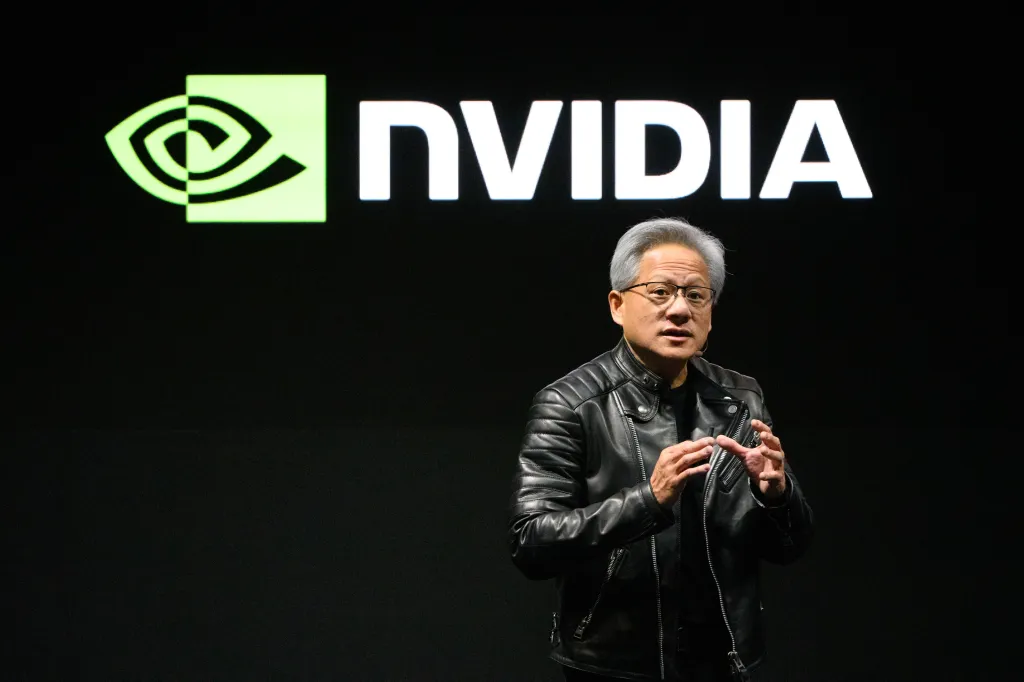Clash Over Nvidia's Future Intensifies Amid Insider Sales and 'Sovereign AI' Push

SANTA CLARA, Calif. — A series of high-volume stock sales by Nvidia executives, highlighted in recent top-tier financial reports, has ignited a fierce debate among investors and analysts over the technology giant's long-term valuation. The transactions have pitted concerns about insider confidence against the company’s aggressive push into what it terms 'Sovereign AI,' a strategy presented as its next multi-trillion-dollar growth engine.
The divergence in market signals—record earnings on one hand, and significant insider selling on the other—has created a complex narrative field, forcing a deeper examination of the foundational drivers behind Nvidia's unprecedented market capitalization.
Scrutiny Over Executive Stock Sales
Prominent financial news outlets, including the Financial Times and CNBC, have recently focused on regulatory filings showing that Nvidia insiders, including CEO Jensen Huang, have sold more than $1 billion in company stock in 2024. These reports have fueled a narrative questioning whether the company's own leadership believes the meteoric rise in its stock price is sustainable.
Critics argue that such large-scale selling could signal a lack of confidence in the company's ability to maintain its explosive growth trajectory. This perspective suggests that those with the most intimate knowledge of the company’s operations are choosing to realize their gains, potentially ahead of a market correction or a slowdown in demand.
However, analysts specializing in executive compensation present a different view, framing the sales as a standard and predictable financial practice. "For executives whose compensation is overwhelmingly stock-based, especially after a 1,000% run-up over a few years, periodic, planned sales for diversification, tax liabilities, and estate planning are not just common, they are financially prudent," stated a senior analyst at a Silicon Valley wealth management firm that handles executive portfolios. Many of these sales are executed under pre-scheduled SEC Rule 10b5-1 trading plans, which are established months in advance to avoid any appearance of trading on non-public information. Supporters of this view also point out that the executives involved continue to hold vast, multi-billion dollar stakes in Nvidia, ensuring their financial interests remain deeply aligned with those of shareholders.
The 'Next Nvidia' Question
Concurrent with the scrutiny over stock sales, a persistent narrative continues to circulate in financial commentary outlets, asking 'who is the next Nvidia?'. Recent articles from publications like The Motley Fool and the Times of India have pointed to giants like Meta Platforms and the AI research leader OpenAI as potential challengers that could usurp Nvidia's dominance, implying its period of hyper-growth may be approaching a plateau.
The argument posits that as major tech companies develop their own custom silicon for AI, they will reduce their reliance on Nvidia's flagship GPUs. Meta's own 'Artemis' chip is often cited as a key example of this trend.
In response, industry experts emphasize Nvidia's deeply entrenched competitive advantages, which they argue are often underestimated. A recent report from a major Wall Street investment bank noted, "Nvidia's moat is not just its hardware, but its full-stack ecosystem, most notably CUDA—a software platform with a 15-year head start that millions of developers are trained on." This integrated approach of hardware, software, and high-speed networking, experts say, creates a level of performance and developer loyalty that is exceptionally difficult to replicate. This perspective was recently bolstered by reports of significant delays in Microsoft’s own internal AI chip project, an event that analysts say underscores the immense technical challenges of competing with Nvidia at the highest level.
New Growth Horizons: The 'Sovereign AI' Strategy
Directly countering concerns of a potential slowdown in spending from its core Big Tech customers, Nvidia is heavily promoting its 'Sovereign AI' initiative as its next major growth vector. The company is positioning itself as the key partner for nations seeking to build their own AI infrastructure, allowing them to process data domestically, foster local innovation, and maintain digital and economic sovereignty.
Company officials have stated that this represents a new, multi-trillion-dollar market opportunity. In recent presentations, Nvidia has outlined how countries across the globe, from Japan to France to India, are investing billions to create national AI clouds, powered by Nvidia technology. Proponents of the company's long-term value argue that this strategy fundamentally de-risks its reliance on a small number of U.S.-based cloud providers and opens up a new, global, and highly motivated customer base.
"The demand from sovereign nations is a completely different demand signal than the one from cloud service providers," a technology strategist commented in a recent research note. "It's driven by national security, economic competitiveness, and data privacy, factors that make it less sensitive to short-term economic cycles."
Innovation Pipeline and Market Dominance
Further reinforcing the company’s position, the technology enthusiast media landscape has been dominated by positive leaks and reports regarding Nvidia’s next-generation consumer graphics cards, the rumored RTX 50 SUPER series. These reports, which focus heavily on significant upgrades to video memory (VRAM), are seen by market watchers as a strategic move to address and neutralize prior criticism from the consumer and professional markets.
This robust product roadmap serves as a powerful counter-argument to any claims of a plateau. Analysts note that the research and development that fuels Nvidia's consumer gaming dominance is the same engine that powers its data center accelerators. This creates a synergistic cycle where advances in one sector directly benefit the other, solidifying the company's technological leadership across the board.
As the debate over Nvidia's future continues, market participants are left to weigh the cautionary signals from insider stock sales against the company's tangible expansion into new global markets and its demonstrably deep innovation pipeline. The ultimate trajectory will likely be determined not by interpreting the stock-selling patterns of a few executives, but by the global adoption of AI and the execution of Nvidia's ambitious strategy to power it.

